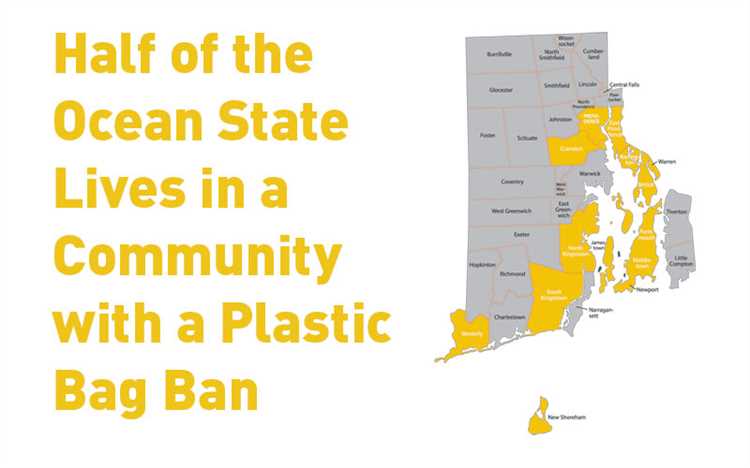
In recent years, there has been a growing global movement towards reducing plastic pollution and promoting sustainable living practices. One of the key strategies in this effort has been the implementation of plastic bag bans by cities around the world. These bans aim to reduce the use of single-use plastic bags, which are a major source of environmental pollution.
Plastic bag bans have been implemented in cities across different continents, with each city designing its own unique approach to tackling the problem. From outright bans to surcharges and incentives for reusable bags, these measures seek to encourage individuals to adopt more sustainable habits and reduce their reliance on disposable plastics.
In this comprehensive guide, we will explore some of the cities that have successfully implemented plastic bag bans and examine the impact of these initiatives on the environment. We will also delve into the various strategies employed by these cities, ranging from awareness campaigns to collaborations with local businesses, in order to provide a detailed overview of the different approaches being taken.
Through this guide, readers will gain valuable insights into the benefits and challenges associated with implementing plastic bag bans, as well as practical tips on how to reduce plastic waste in their own lives. By highlighting the successes of these cities and sharing best practices, we hope to inspire more cities around the world to take action and implement their own plastic bag bans, contributing to the global effort to combat plastic pollution and create a more sustainable future.
- Cities Implementing Plastic Bag Bans: A Comprehensive Guide
- Why Plastic Bag Bans Are Important
- 1. Reduce Plastic Pollution
- 2. Conservation of Resources
- 3. Promote Sustainable Shopping Habits
- How Plastic Bag Bans Impact the Environment
- Major Cities That Have Implemented Plastic Bag Bans
- Benefits of Plastic Bag Bans for Local Communities
- 1. Environmental Protection
- 2. Reduction in Litter
- 3. Promotion of Sustainable Alternatives
- Challenges in Implementing Plastic Bag Bans
- 1. Resistance from Businesses
- 2. Public Opposition
- 3. Implementation and Enforcement
- 4. Transition Period
- Successful Strategies for Implementing Plastic Bag Bans
- Q&A:
- What cities have implemented plastic bag bans?
- Why do cities implement plastic bag bans?
- How do plastic bag bans impact businesses?
- Are there any alternatives to plastic bags?
Cities Implementing Plastic Bag Bans: A Comprehensive Guide
In recent years, there has been a growing movement to ban single-use plastic bags in cities around the world. Plastic bag bans are implemented as a way to reduce plastic waste, protect the environment, and promote sustainable practices.
Here, we provide a comprehensive guide on cities that have successfully implemented plastic bag bans:
1. San Francisco, California: San Francisco was the first city in the United States to implement a plastic bag ban in 2007. The ban prohibits large grocery stores and pharmacies from distributing single-use plastic bags to customers.
2. Paris, France: Paris implemented a plastic bag ban in 2016. The ban includes both single-use plastic bags and plastic bags used for fruits and vegetables in supermarkets.
3. Melbourne, Australia: Melbourne introduced a plastic bag ban in 2019. The ban applies to all types of retail stores, including supermarkets, convenience stores, and clothing stores.
4. Mumbai, India: Mumbai enacted a plastic bag ban in 2018. The ban prohibits the manufacturing, storing, and use of certain types of single-use plastic bags.
5. Vancouver, Canada: Vancouver implemented a plastic bag ban in 2020. The ban applies to all retail stores and includes a minimum charge for reusable or paper bags.
6. Nairobi, Kenya: Nairobi banned plastic bags in 2017. The ban includes the production, importing, and use of plastic bags in the city.
7. Madrid, Spain: Madrid introduced a plastic bag ban in 2021. The ban applies to all types of retail stores and includes a charge for alternative bags.
8. Cape Town, South Africa: Cape Town implemented a plastic bag ban in 2020. The ban restricts the use of single-use plastic bags in retail stores, markets, and street vendors.
9. Taipei, Taiwan: Taipei introduced a plastic bag ban in 2020. The ban prohibits the distribution of single-use plastic bags in supermarkets, department stores, and convenience stores.
10. Rio de Janeiro, Brazil: Rio de Janeiro enacted a plastic bag ban in 2019. The ban applies to all retail businesses, including supermarkets, pharmacies, and restaurants.
It is important to note that the specifics of each city’s plastic bag ban may vary. Some bans may include exemptions for certain types of businesses or bags, while others may impose fines for non-compliance. Check with local authorities or official websites for more information.
The implementation of plastic bag bans in cities is a significant step towards reducing plastic waste and promoting more sustainable practices. These bans encourage the use of reusable bags and promote awareness about the environmental impact of single-use plastics. By following the example of these cities, other municipalities can also take action to address the plastic pollution problem and create a more sustainable future.
Why Plastic Bag Bans Are Important
Plastic bag bans have become an increasingly popular method of addressing the environmental impact and waste associated with single-use plastic bags. These bans prohibit retailers from providing plastic bags to customers at the point of sale, instead encouraging the use of reusable bags. There are several key reasons why plastic bag bans are important:
1. Reduce Plastic Pollution
Plastic bags are a major contributor to litter and marine pollution. They are lightweight and easily carried by wind and water, often ending up in our oceans and waterways. Plastic bags can take hundreds of years to decompose, causing long-lasting harm to marine life and ecosystems. By implementing plastic bag bans, cities can drastically reduce plastic pollution and protect our environment.
2. Conservation of Resources
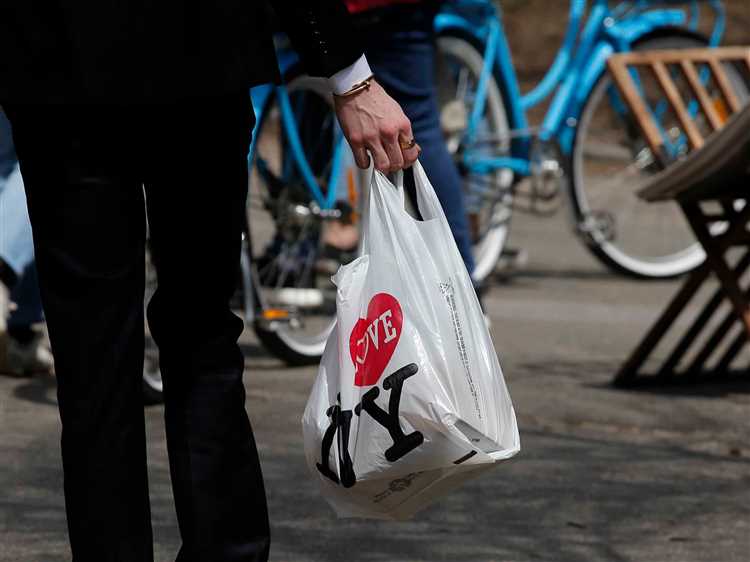
The production of plastic bags requires significant amounts of resources, including fossil fuels and water. By banning plastic bags, cities can conserve these resources and reduce their ecological footprint. Additionally, the manufacturing process for plastic bags often releases harmful greenhouse gases and pollutants into the atmosphere. By implementing bans, cities can mitigate these negative environmental impacts.
3. Promote Sustainable Shopping Habits
Plastic bag bans encourage consumers to adopt more sustainable shopping habits. By using reusable bags, individuals can reduce their reliance on single-use plastics and make a positive impact on the environment. This shift in behavior promotes a more conscious and responsible approach to consumption, leading to a more sustainable future.
In conclusion, plastic bag bans play a crucial role in addressing plastic pollution, conserving resources, and promoting sustainable shopping habits. By implementing these bans, cities can take an important step towards protecting our planet for future generations.
How Plastic Bag Bans Impact the Environment
Plastic bag bans have a significant impact on the environment, resulting in several positive outcomes. By reducing the consumption and production of plastic bags, these bans help to minimize the negative effects associated with the use of plastic bags.
One major environmental benefit of plastic bag bans is the reduction in plastic waste. Plastic bags are notorious for their long decomposition time, with some estimates suggesting it can take up to 1,000 years for them to break down. By eliminating or limiting the use of plastic bags, cities can reduce the amount of plastic waste that ends up in landfills or as litter in the environment.
Banning plastic bags also helps to protect wildlife and marine ecosystems. Many animals, such as sea turtles and birds, mistake plastic bags for food and can suffer from ingestion or entanglement. These bans help to minimize the risk of wildlife harm by decreasing the availability of plastic bags in their habitats.
In addition to wildlife protection, plastic bag bans contribute to improving overall air and water quality. The production and disposal of plastic bags release harmful greenhouse gases and toxins into the atmosphere and water bodies. By reducing plastic bag usage, these bans help to decrease pollution levels and promote a healthier environment.
Furthermore, plastic bag bans encourage the adoption of more sustainable alternatives. Many cities promote the use of reusable bags or biodegradable alternatives as an eco-friendly choice. This shift in consumer behavior can lead to a significant reduction in overall plastic consumption and contribute to a more sustainable future.
| Positive Impacts of Plastic Bag Bans on the Environment |
|---|
| Reduction in plastic waste |
| Protection of wildlife and marine ecosystems |
| Improved air and water quality |
| Promotion of sustainable alternatives |
Major Cities That Have Implemented Plastic Bag Bans
As concern over the environmental impact of plastic waste continues to grow, an increasing number of cities around the world are implementing plastic bag bans to reduce single-use plastic consumption. These bans aim to encourage shoppers to use reusable bags and reduce the overall amount of plastic waste.
Here are some major cities that have successfully implemented plastic bag bans:
1. San Francisco, California, USA
In 2007, San Francisco became the first city in the United States to implement a plastic bag ban. The ban applies to both plastic bags provided by retailers and compostable bags.
2. Paris, France
Paris implemented a plastic bag ban in 2016, prohibiting the distribution of lightweight plastic bags in retail stores. The ban aims to reduce plastic waste and promote the use of reusable bags.
3. Delhi, India
In 2017, the National Green Tribunal in India imposed a ban on the use, sale, and storage of plastic bags in Delhi. The ban also includes other types of single-use plastic products to combat the city’s severe air pollution and waste management issues.
4. Melbourne, Australia
Melbourne implemented a ban on lightweight plastic bags in 2019, following in the footsteps of several other Australian cities. The ban applies to businesses and retailers across the city and aims to reduce plastic waste and encourage the use of reusable alternatives.
5. Nairobi, Kenya
In 2017, Nairobi, the capital city of Kenya, implemented a strict plastic bag ban. The ban prohibits the manufacturing, importing, sale, and use of plastic bags in an effort to combat the country’s serious plastic pollution problem.
These cities serve as examples of successful plastic bag bans, showing that it is possible to reduce plastic waste and promote sustainable alternatives. As more cities around the world recognize the importance of addressing plastic pollution, the list of cities implementing plastic bag bans continues to grow.
Benefits of Plastic Bag Bans for Local Communities
Plastic bag bans have numerous benefits for local communities. Here are some of the key advantages:
1. Environmental Protection
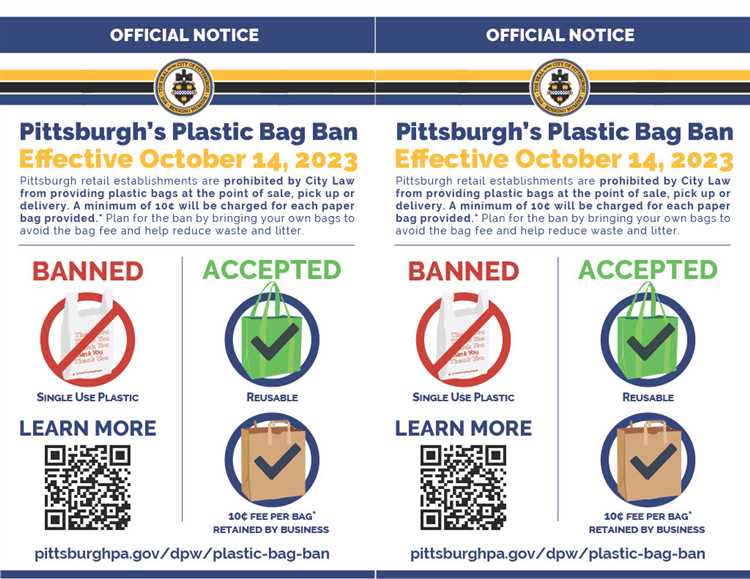
Plastic bags are notorious for their negative impact on the environment. They are not biodegradable and can take hundreds of years to decompose. By implementing a plastic bag ban, local communities significantly reduce the amount of plastic waste that ends up in landfills, oceans, and natural habitats. This helps protect wildlife and ecosystems.
2. Reduction in Litter
One of the most visible effects of plastic bag bans is the reduction in litter. Without plastic bags, there are fewer bags littering streets, parks, and public spaces. This improves the overall cleanliness of the community and creates a more appealing environment for residents and visitors alike. Additionally, less litter means less time and money spent on cleaning and maintenance.
3. Promotion of Sustainable Alternatives
Plastic bag bans encourage the use of sustainable alternatives such as reusable bags. These bags are typically made from eco-friendly materials like cotton or jute, and they can be used multiple times. By promoting the use of reusable bags, local communities foster a culture of sustainability and reduce their reliance on single-use plastics.
Moreover, the implementation of plastic bag bans also creates opportunities for local businesses that produce and sell reusable bags. This stimulates the local economy and supports the growth of sustainable industries.
Conclusion:
Implementing a plastic bag ban brings numerous benefits to local communities. Not only does it protect the environment and reduce litter, but it also promotes sustainable alternatives and supports the local economy. By making this change, communities can make a significant positive impact on both their immediate surroundings and the planet as a whole.
Challenges in Implementing Plastic Bag Bans
While the implementation of plastic bag bans has the potential to bring about positive environmental changes, there are specific challenges that cities may face in the process. These challenges include:
1. Resistance from Businesses
One of the primary challenges faced when implementing plastic bag bans is resistance from businesses. Some businesses, especially smaller ones, may argue that the prohibition of plastic bags will increase their costs and negatively impact their profit margins. It is important for cities to educate businesses about the long-term benefits of the ban and help them find alternative packaging options.
2. Public Opposition
Another challenge is potential public opposition to plastic bag bans. Some individuals may see the ban as an inconvenience or an unnecessary restriction on personal freedom. Effective communication and public education campaigns are essential in addressing such opposition and raising awareness about the environmental impact of plastic bags.
3. Implementation and Enforcement
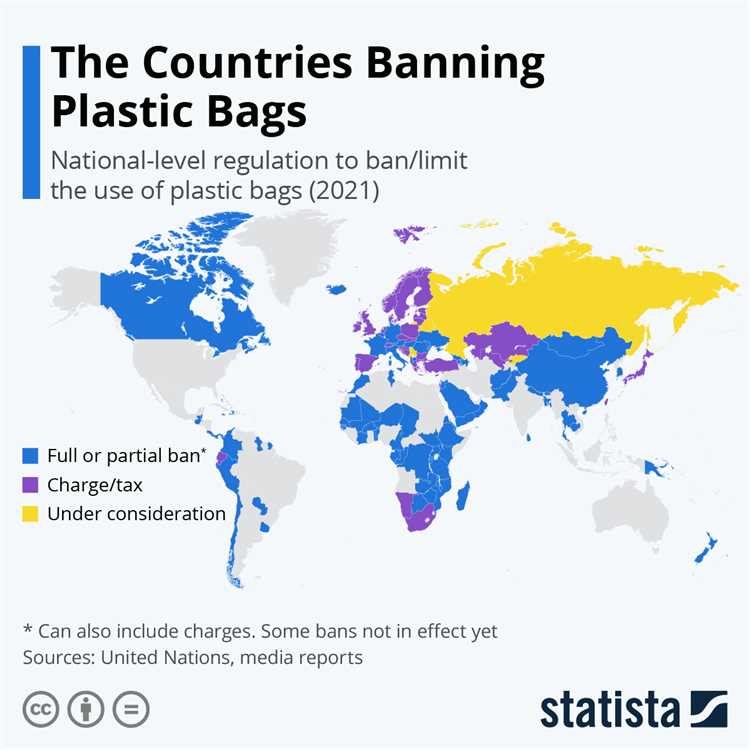
Implementing and enforcing plastic bag bans can be logistically challenging for cities. They need to establish clear guidelines and regulations for retailers, as well as develop mechanisms for monitoring compliance. Enforcement agencies also need to be adequately staffed and trained to ensure that the ban is effectively enforced.
4. Transition Period
During the transition period, where plastic bags are phased out and alternatives are adopted, cities may face temporary setbacks. It may take time for businesses and individuals to switch to reusable bags or other alternatives. Providing support, such as offering incentives for the use of reusable bags, can help facilitate the transition.
Overcoming these challenges requires a collaborative approach involving businesses, residents, and local government. By addressing concerns, providing education, and offering support, cities can successfully implement plastic bag bans and reap the environmental benefits they bring.
Successful Strategies for Implementing Plastic Bag Bans
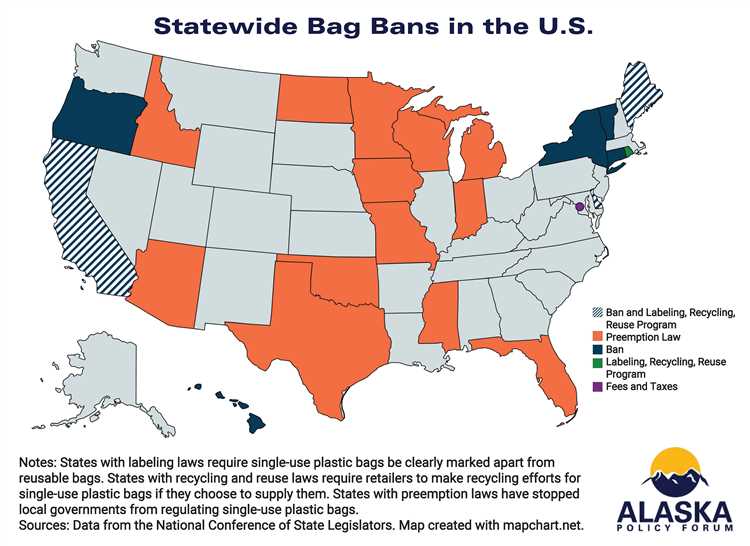
Implementing a successful plastic bag ban requires careful planning and effective strategies. Cities and communities around the world have successfully implemented bans, reducing plastic waste and promoting sustainability. Here are some strategies that have proven to be effective:
| Strategy | Description |
|---|---|
| Public Awareness Campaigns | Raise awareness about the negative impact of plastic bags on the environment and promote the benefits of reusable alternatives. Utilize social media, billboards, and community events to reach a wide audience. |
| Collaboration with Retailers | Engage retailers in the process by providing information, resources, and incentives to transition to reusable bags. Offer training sessions for employees and displays showcasing reusable bags. |
| Phase-In Period | Allow for a gradual transition by implementing a phase-in period where plastic bags are still available but with a fee. This gives consumers time to adjust and encourages the adoption of reusable bags. |
| Provide Alternatives | Ensure that affordable and accessible alternatives to plastic bags are readily available. This can include offering free or discounted reusable bags, promoting the use of paper bags, or encouraging customers to bring their own bags. |
| Monitoring and Enforcement | Establish a system to monitor compliance with the ban and enforce penalties for violations. This can include regular inspections, fines, and public reporting of enforcement efforts. |
| Evaluation and Feedback | Regularly evaluate the effectiveness of the ban and gather feedback from retailers, consumers, and environmental organizations. Make necessary adjustments based on the feedback received. |
| Education and Outreach | Provide educational resources and programs to schools, businesses, and community organizations to raise awareness about the ban and promote sustainable practices. |
By implementing these strategies, cities can successfully implement plastic bag bans and contribute to a cleaner and more sustainable environment.
Q&A:
What cities have implemented plastic bag bans?
There are numerous cities around the world that have implemented plastic bag bans. Some examples include San Francisco, California; Seattle, Washington; Austin, Texas; Paris, France; and Mumbai, India.
Why do cities implement plastic bag bans?
Cities implement plastic bag bans for various reasons. One common reason is to reduce the environmental impact of plastic bags, as they can take hundreds of years to decompose and often end up in landfills or polluting oceans and other natural habitats. Additionally, plastic bags often contribute to littering and can harm wildlife. By implementing bans, cities aim to encourage the use of reusable bags and promote more sustainable alternatives to plastic bags.
How do plastic bag bans impact businesses?
Plastic bag bans can have both positive and negative impacts on businesses. On one hand, businesses that rely heavily on the use of plastic bags, such as grocery stores or convenience stores, may initially see a decrease in customer satisfaction or increased costs associated with providing alternative bags. However, plastic bag bans also present an opportunity for businesses to promote their brand by offering reusable bags with their logo, and to align themselves with environmentally conscious consumers who support sustainability initiatives.
Are there any alternatives to plastic bags?
Yes, there are many alternatives to plastic bags. Some popular alternatives include reusable bags made from materials such as cotton, canvas, or recycled plastic; paper bags made from recycled materials; and compostable bags made from plant-based materials. These alternatives are more durable and can be used multiple times, reducing the need for single-use plastic bags.